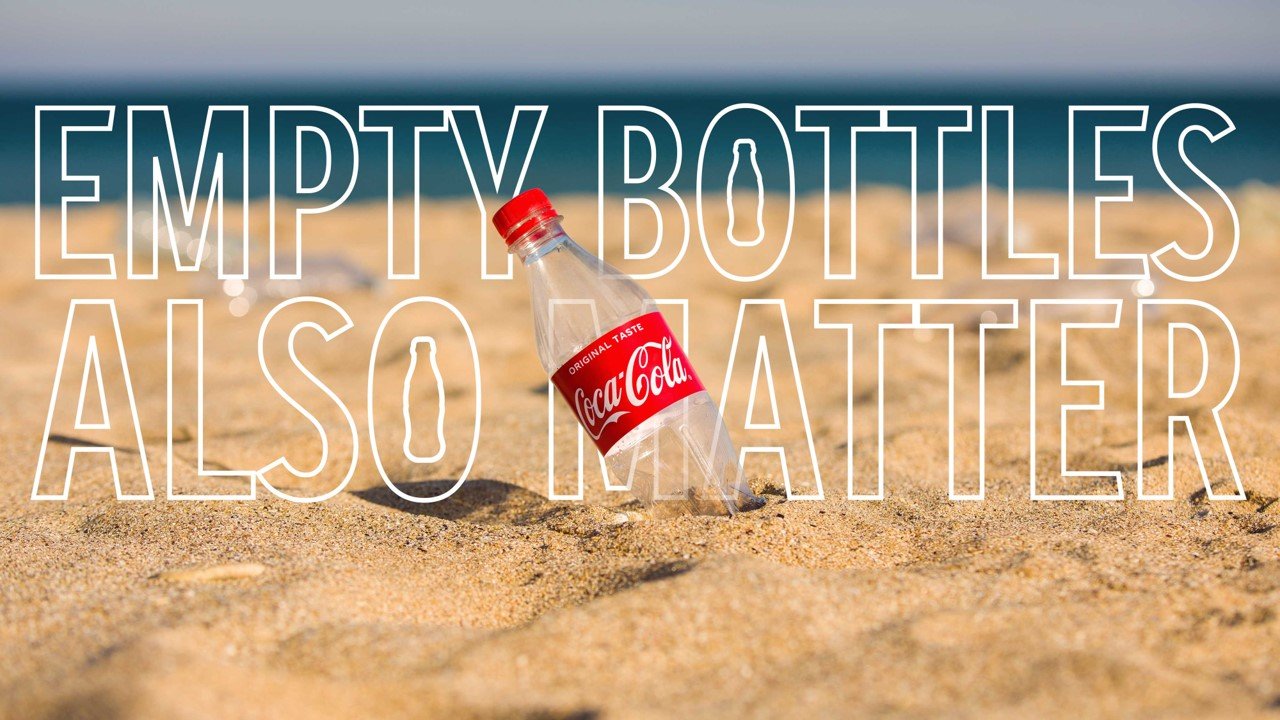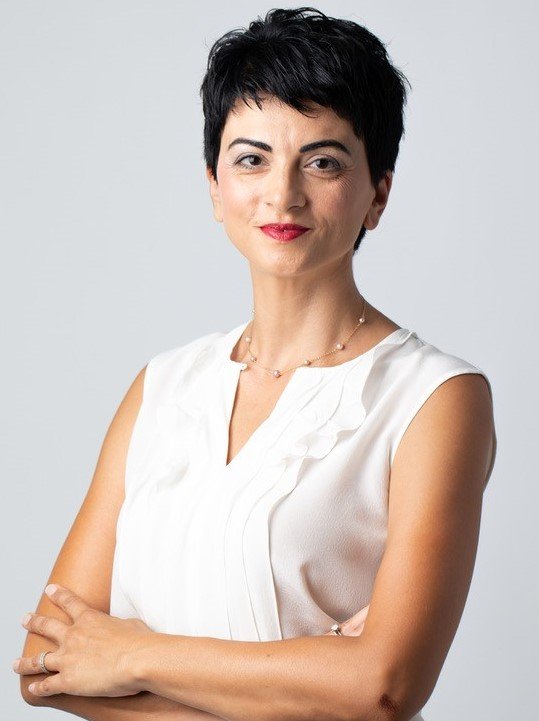In 2020, Coca-Cola HBC achieved impressive results in its drive to reduce its environmental footprint. The company has set “A World Without Waste” as its goal. Kalia Patsia, Corporate Affairs & Sustainability Manager for Coca–Cola HBC Cyprus, spoke to the Cyprus Mail about the company’s notable achievements as well as the aim of the new campaign called “Every Bottle Matters.”
Tell us a little about your new campaign and your goals
Last month we launched the “Every Bottle Matters” campaign, aimed at raising awareness about the importance of recycling, and the need for society to shift toward a cyclical economy. Our company’s position is that each business is a part of the community in which it operates and should provide solutions to the major issues facing that community. That is why we are undertaking specific initiatives.
Our goal for 2030 is to recycle a bottle or can for every one sold, so that each packaging lasts more than one lifetime. Coca-Cola HBC is taking concrete steps to support the national effort to increase recycling of single-use plastic bottles, and we want our country to attain its targets – 77% by 2025 and 90% by 2029 – as defined by the European Union.
It should be noted that we are founding members of Green Dot Cyprus, and through specific actions we have long played a part in collecting and recycling, but also in raising awareness among the public. What’s more, we welcome the recent announcement by Agriculture Minister Costas Kadis regarding the rollout of a successful and functional deposit return system concerning the packaging of our products.
What kind of actions does your company take to reduce its environmental footprint?
We aim to take more and more actions geared at reducing our environmental footprint. To maximise our effort, we are working on implementing a consistent, focused approach in strategic areas for our company, for stakeholders and for the community. Our actions serve to boost the various green drives. Our main pillars are: water, recycling and energy.
Water
Water is the source of all life. Safe and clean drinking water is essential to human health and to ecosystems. Being the key ingredient in our products, water is an integral part of the production process since, it is used during the production process as well as for cleaning and disinfecting machinery. It is also necessary to grow the raw materials that we use.
We handle this staple commodity, water, with the respect it deserves. Across our production process, we implement standards and policies geared at the responsible management of water and its recycling. We carry out daily inspections and online measurements and analyses, to track and deal with any water leakage. Our factories recycle the water and re-use it, wherever possible. At the same time, we are designing and implementing a plan to ensure healthy and sustainable management of the water resources that we use – for instance waste processing which protects marine life. In 2020, our productive units re-used and recycled 989,000 litres of water, while our water usage fell by 25.6% compared to 2019 – corresponding to 25,168,608 litres.
In fact, and because of our strategy, the Alliance for Water Stewardship (AWS) has granted us certification for responsible water management for all our production units.
Beyond that, and regarding social programmes, over the last seven years we’ve been working alongside the Global Water Partnership Mediterranean (GWP-Med) organisation in implementing the ‘Mission Water’ programme, from which Cyprus stands to benefit for years to come, saving 5,840,000 litres of water a year. The programme promotes better water management, by adopting alternative forms like rainwater or grey water, to cover usages such as irrigating green spaces. It’s worth noting that, as part of the programme, 19 projects of national importance were carried out, 16 grey water collection systems were installed and restored at schools and athletics grounds, 30 technicians received training, 280 teachers received re-training, while 83,621 residents of Cyprus benefited in one way or another.
Recycling
In 2018 at Davos, James Quincey, Chairman & CEO of The Coca‑Cola Company announced the company’s global vision for ‘A World Without Waste’ – an industry-first goal to collect and recycle the equivalent of every bottle or can it sells globally by 2030. Since then, our goal globally has been to design and realise initiatives and actions in line with this vision.
Our strategy for sustainable growth focuses on the following pillars:
- Designing packaging consisting of at least 50% recycled plastic, by 2030;
- Collecting and recycling one plastic bottle or aluminum can for each one we place on the market, by 2030;
- Working with valuable partners, like the AKTI Project and Research Centre, in implementing the Zero Waste Beach programme.
Having already achieved our target – 100% of our packaging is recyclable – we are currently aiming at collecting and recycling, on a one-to-one basis, of each packaging we have on the market by 2030. In addition, by 2030 our PET packaging will contain at least 50% recycled plastic, while we also focus on innovation and on developing packaging with a lighter environmental footprint. We’ve also replaced plastic straws with paper straws for the Lanitis 250ml and the Lanitis Kiddo juices.
Within the year we shall be carrying out an important investment, worth €4 million, involving the scrapping of plastic foil wraps on aluminum multi-packs. This initiative is a first for the industry of non-alcoholic beverages, but also for our country as a whole.
To us, initiatives that are collaborative in nature and are driven by sustainable growth, constitute the optimal means for giving back to the community. For the third straight year we are renewing our partnership with the AKTI Project and Research Centre, in implementing the unique Zero Waste Beach project. It aims to mobilise all stakeholders as well as the public in the fight against marine plastic pollution through Intervention and Education, helping people change their attitudes toward the issue of waste. It’s a programme that will bequeath a legacy to future generations.
Energy
We recognise the critical consequences of climate change, both for the planet itself and for humans. Correct energy usage is key to our company’s sustainable growth, also impacting cost.
Being committed to playing a part in limiting climate change, our priority lies in minimising our environmental footprint across the value chain, including for consumption relating to our supply chain as well as in the end-use of our products.
In this context, the actions we take to cut back on energy consumption and carbon dioxide emissions go hand in hand with our contribution to achieving the United Nations Sustainable Development Goals, in particular those pertaining to responsible production and consumption, clean energy and countering climate change.
At our factories we see to it that we track energy usage on an ongoing basis, with continuous measurements, we control for gaseous pollutants, and immediately repair energy losses where these are detected. Thanks to this commitment and vigilance, in 2020 we managed to reduce energy consumption at our factories by 5,423,727 MJ – or by 14% compared to 2019. We’ve also made a pledge that by 2025, 50% of power at our factories will derive from renewable and green energy sources, and that 100% of the electrical energy supplied to our factories will come from renewables.








Click here to change your cookie preferences